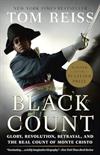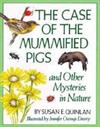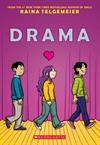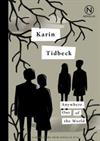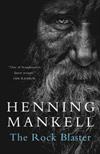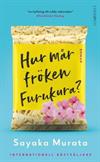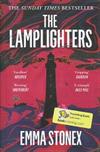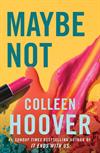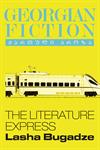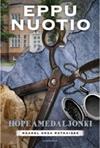
The Years of Rice and Salt
Registered by avanta7 on 7/7/2005
1 journaler for this copy...
In the 14th Century CE, the Black Death wiped out roughly 1/3 of the world population -- and up to 60% of all people in Western Europe -- and changed world history. But what might have happened to the world had the Plague been more severe? In The Years of Rice and Salt, Kim Stanley Robinson posits a world in which some 90% or more of the population is dead, Europe is utterly depopulated, and the survivors are concentrated in Eastern Asia.
It's an ingenious and startling premise. Seriously, think about it. Christianity and Judaism, gone as practiced religions, and scarcely even mentioned except as footnotes in a history book. No Shakespeare, no Queen Elizabeth, no daVinci, no Van Gogh, no Mozart, Columbus, Magellan, Rembrandt, Dumas, Jefferson, Franklin, Galileo, Copernicus, Kepler.... the list of never-to-exist Eurocentric artists, authors, explorers, and other world shapers is virtually endless.
Instead, Robinson introduces us to a world gradually explored and settled by Asian peoples. In keeping with a common theme of Eastern religions, he uses the plot device of reincarnation to tell his story. From a primitive village on the steppes of Mongolia to a 100-story highrise in Burma, centuries later, each character returns in the next cycle, to learn more, to grow more, to be reunited with each other time and again, and to gradually learn to recognize each other, at least a little.
It's a fabulous premise. I wish I had liked its execution more.
Robinson's style is bone-dry and stultifying. Even his romance and battle scenes are presented at an objective distance, lacking all blood and passion. I plodded through this book, one sere paragraph after another, and only finished it out of sheer stubbornness, as in: "By God, I've spent three weeks reading this thing, I'll be damned if I give up on it now.") In the end, what kept me going was drawing parallels between the book's characters and our world's key historical figures. ("Okay, this woman would be Marie Curie in our world," and so forth.)
This isn't to say it's badly written. It isn't. It's beautifully written; it had to be to make me stick with it for nearly 700 pages. Deserts are beautiful, too. I'm still awfully glad when I leave the desert and am free to travel somewhere else.
It's an ingenious and startling premise. Seriously, think about it. Christianity and Judaism, gone as practiced religions, and scarcely even mentioned except as footnotes in a history book. No Shakespeare, no Queen Elizabeth, no daVinci, no Van Gogh, no Mozart, Columbus, Magellan, Rembrandt, Dumas, Jefferson, Franklin, Galileo, Copernicus, Kepler.... the list of never-to-exist Eurocentric artists, authors, explorers, and other world shapers is virtually endless.
Instead, Robinson introduces us to a world gradually explored and settled by Asian peoples. In keeping with a common theme of Eastern religions, he uses the plot device of reincarnation to tell his story. From a primitive village on the steppes of Mongolia to a 100-story highrise in Burma, centuries later, each character returns in the next cycle, to learn more, to grow more, to be reunited with each other time and again, and to gradually learn to recognize each other, at least a little.
It's a fabulous premise. I wish I had liked its execution more.
Robinson's style is bone-dry and stultifying. Even his romance and battle scenes are presented at an objective distance, lacking all blood and passion. I plodded through this book, one sere paragraph after another, and only finished it out of sheer stubbornness, as in: "By God, I've spent three weeks reading this thing, I'll be damned if I give up on it now.") In the end, what kept me going was drawing parallels between the book's characters and our world's key historical figures. ("Okay, this woman would be Marie Curie in our world," and so forth.)
This isn't to say it's badly written. It isn't. It's beautifully written; it had to be to make me stick with it for nearly 700 pages. Deserts are beautiful, too. I'm still awfully glad when I leave the desert and am free to travel somewhere else.
